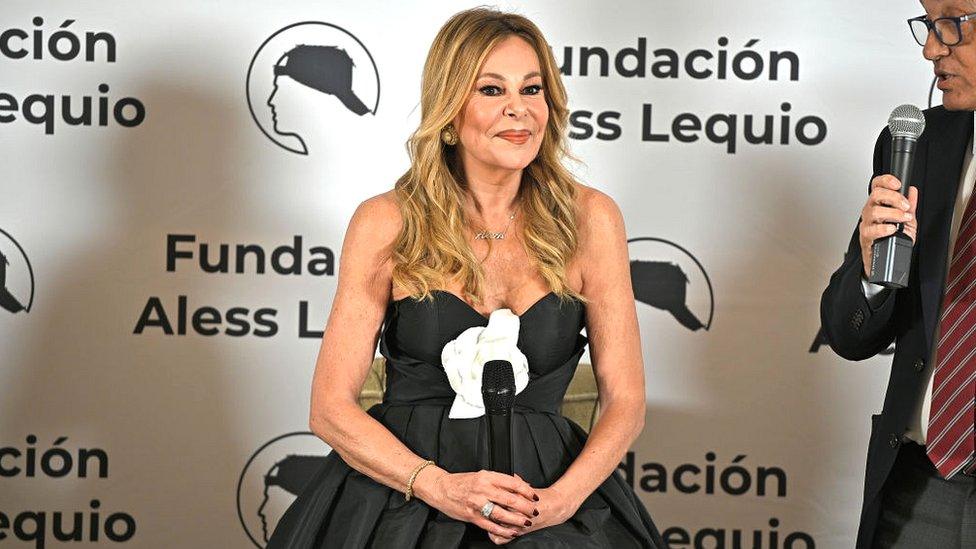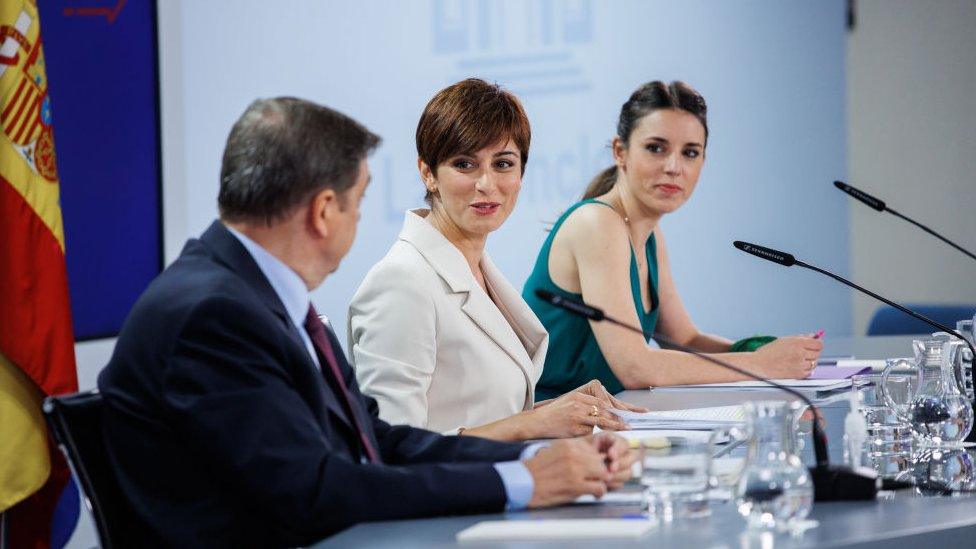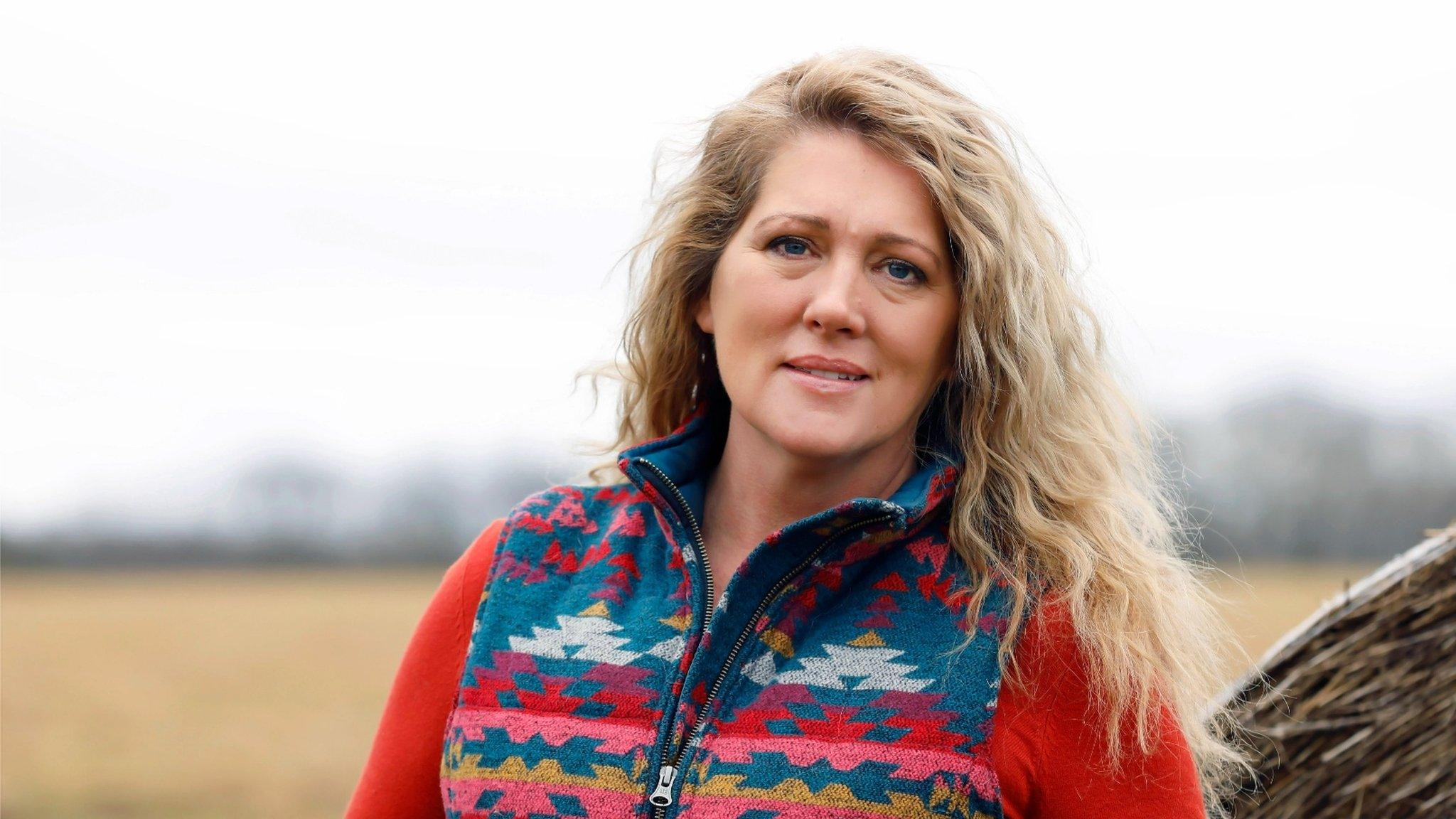Spanish anger over TV star Ana Obregón's surrogate baby in US
- Published

Ana Obregón says she is "alive again" after revealing news of her newborn baby
Spanish TV actress Ana Obregón has come under fire after revealing that she has had a baby girl via surrogacy in the US at the age of 68.
Obregón is best known for starring in a number of Spanish sitcoms.
Her son and only child died of cancer in 2020 at the age of 27, and she had since spoken of her struggles to move on with her life.
Spain has banned all forms of surrogacy, but parents can adopt the child when they return to the country.
Surrogacy is when a woman agrees to carry and give birth to a baby on behalf of someone else., external It is often, but not always, done in exchange for money.
Obregón - who also lost both her parents after the death of her son - was pictured on the cover of ¡Hola! magazine earlier this week outside a Miami hospital, cradling a newborn baby.
In an Instagram post, external, she later commented on the magazine cover, saying:
"A light full of love came into my darkness. I will never be alone again. I AM ALIVE AGAIN."
Her remarks ignited debate on Spanish social media, and some ministers in Spain's left-wing government were incensed at the move.
Education Minister Pilar Alegría called the image of Obregón leaving the hospital "Dantesque", referring to the Italian writer's journey through hell.
Equality Minister Irene Montero said the move was "a form of violence against women" and added there was a "clear poverty bias" against women who become surrogate mothers because they needed the money.
Ms Alegría also noted: "This is not surrogacy, this is renting a womb which, as we know, is an illegal practice in Spain."
"Women's bodies should neither be bought nor rented to satisfy anyone's desires," declared Presidency Minister Felix Bolaños.
But Cuca Gamarra - number two in the conservative People's Party - was more cautious, saying the subject had to be approached via "deep and serene debates because it touches on many moral, ethical and religious questions".
Spain's Socialist-led coalition government came to power almost five years ago and has made women's rights one of its key areas of policy.
Earlier this year, it imposed tighter restrictions on surrogacy, banning advertisement for surrogacy agencies.
It identifies surrogacy as a form of violence against women, categorises any "reproductive exploitation", forced pregnancy and forced abortion, forced sterilisation or forced contraception in the same way, external.
Related topics
- Published17 May 2022

- Published29 January 2023
